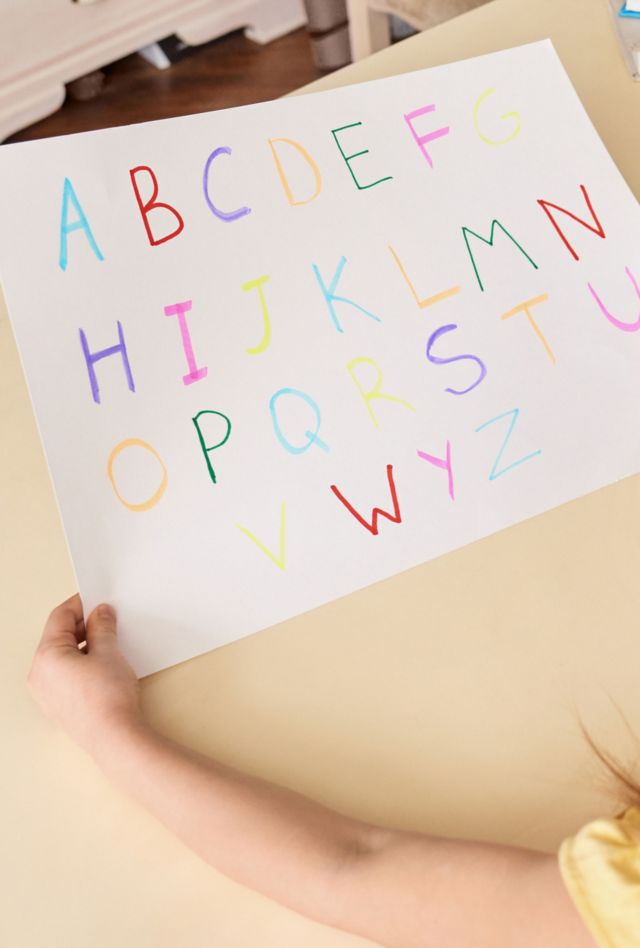Minnesota Reading Corps Pre-K Program Evaluation

The limited number of previous evaluations on volunteer-only tutoring programs has shown variation in their effectiveness in improving children’s literacy proficiency. In 2014, NORC at the University of Chicago evaluated an AmeriCorps literacy intervention program, the Minnesota Reading Corps, which showed that volunteer AmeriCorps members could significantly increase preschool students’ emergent literacy skills over a single school year. The Corporation for National and Community Service (CNCS) sponsored the evaluation.
The Minnesota Reading Corps program is a data-driven statewide initiative with a mission to help every Minnesota child become a proficient reader by the end of third grade. Minnesota Reading Corps’ preschool (pre-K) program engages a diverse group of AmeriCorps volunteers with no prerequisite literacy or education backgrounds to implement best practices in oral language and emergent literacy development. NORC used a matched-comparison Quasi-Experimental Design (QED) study, where comparison pre-K sites were matched to each Minnesota Reading Corp site on specific site-level characteristics and student outcomes assessed.
Key Study Findings include:
- Pre-K students in the Minnesota Reading Corps program achieved significantly higher emergent literacy assessment scores by the end of the school year than did students enrolled at matched-comparison sites. The 4- and 5-year-old students at Minnesota Reading Corps pre-K sites outperformed students at matched-comparison sites on all five emergent literacy outcomes assessed: letter sound and letter name fluency (alphabet knowledge), rhyming and alliteration fluency (phonological awareness), and picture name fluency (vocabulary). The effect sizes associated with these differences were not only significant but substantial in magnitude. Further, 4- and 5-year-old Minnesota Reading Corps pre-K students met or exceeded end-of-school-year targets for all five emergent literacy outcomes, suggesting that they were kindergarten-ready on these critical skills.
- The Minnesota Reading Corps pre-K program was equally effective for students regardless of gender, race/ethnicity, or Dual Language Learner (DLL) status. Students from all subgroups examined produced significant growth in emergent literacy outcomes regardless of gender, race/ethnicity, or DLL status. In instances where statistically significant differences were found, students at Minnesota Reading Corps pre-K sites who were traditionally at risk for academic failure (i.e., DLLs, non-white students) grew more over the course of the year than similar types of students at comparison sites.
- The Minnesota Reading Corps program is replicable in multiple preschool settings. The Minnesota Reading Corps pre-K program was consistently effective across the individual sites where the students received program services, regardless of the type of school setting in which the program was implemented.
The results suggest that the Minnesota Reading Corps pre-K program provides a common infrastructure for coordinated, intentional instruction through a Literacy Rich Schedule, clear direction for interacting with pre-K students, and proven strategies for embedding language and literacy instruction at times during the school day that are often overlooked. Children can better make sense of language and build proficiency when instruction, conversation, self-directed play, and structured activities are embedded within a common context and intentionally linked by a theme.
Study Description
Between 2011 and 2014, NORC designed and implemented an impact and process evaluation of the Minnesota Reading Corps program on behalf of the CNCS. The evaluation consisted of three components: a feasibility study, a process assessment, and an impact evaluation.
The feasibility study included:
- A thorough review of the literature
- A field assessment with six similar literacy enrichment or reading tutoring programs
- The development of two impact evaluation designs (for pre-K and K-3 programs), assessment tools, and random assignment procedures
- Fielding an AmeriCorps member survey.
The process assessment consisted of detailed site visits with 25 Minnesota Reading Corps programs, including Head Start programs, community-based preschools, and public schools to assess program context, fidelity to the Reading Corps model, and facilitators and barriers to program implementation. In addition, we completed a baseline and follow-up survey with AmeriCorps members to determine the program’s effect on their educational goals and civic engagement.
The impact evaluation comprised an experimental impact evaluation of the K-3 program and a quasi-experimental evaluation of the pre-K program to measure the impact of Minnesota Reading Corps on students’ literacy levels. The results from both studies showed that younger students (i.e., pre-K, kindergarten, and first-grade students) participating in the Minnesota Reading Corps program achieved significantly higher literacy gains than did similar students not participating in the program.
Related Tags
Project Leads
-
Carrie E. Markovitz
Program Area Director for Youth ResearchProject Director & Principal Investigator -
Marc Hernandez
Associate DirectorPrincipal Investigator -
Carol Hafford
Senior FellowSenior Staff -
Heidi Whitmore
Senior FellowSenior Staff










